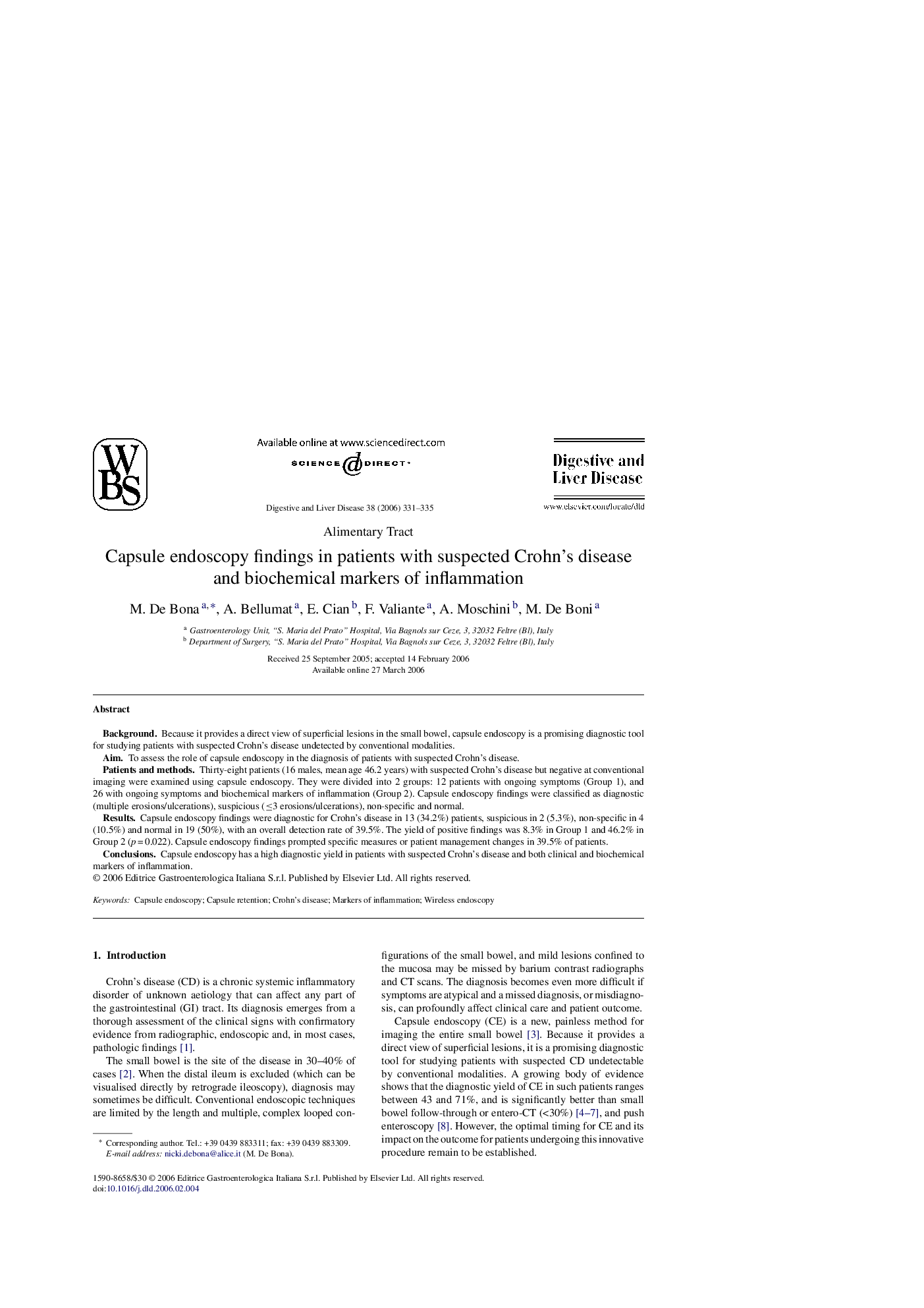| Article ID | Journal | Published Year | Pages | File Type |
|---|---|---|---|---|
| 3266750 | Digestive and Liver Disease | 2006 | 5 Pages |
BackgroundBecause it provides a direct view of superficial lesions in the small bowel, capsule endoscopy is a promising diagnostic tool for studying patients with suspected Crohn's disease undetected by conventional modalities.AimTo assess the role of capsule endoscopy in the diagnosis of patients with suspected Crohn's disease.Patients and methodsThirty-eight patients (16 males, mean age 46.2 years) with suspected Crohn's disease but negative at conventional imaging were examined using capsule endoscopy. They were divided into 2 groups: 12 patients with ongoing symptoms (Group 1), and 26 with ongoing symptoms and biochemical markers of inflammation (Group 2). Capsule endoscopy findings were classified as diagnostic (multiple erosions/ulcerations), suspicious (≤3 erosions/ulcerations), non-specific and normal.ResultsCapsule endoscopy findings were diagnostic for Crohn's disease in 13 (34.2%) patients, suspicious in 2 (5.3%), non-specific in 4 (10.5%) and normal in 19 (50%), with an overall detection rate of 39.5%. The yield of positive findings was 8.3% in Group 1 and 46.2% in Group 2 (p = 0.022). Capsule endoscopy findings prompted specific measures or patient management changes in 39.5% of patients.ConclusionsCapsule endoscopy has a high diagnostic yield in patients with suspected Crohn's disease and both clinical and biochemical markers of inflammation.
